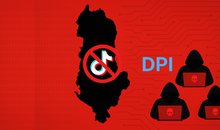
 Flash News
Flash News
Electoral crime in Belsh, Elbasan Prosecutor's Office arrests 4 IMT employees after PD report
Incident at Giro d'Italia, citizen hit by cyclist
DP against SP's request to postpone voting hours in Vlora: Abuse of the electoral process
Wanted in Albania for murder, Ardian Ahmetaj, friend of Laert Haxhiu, arrested in Greece
The second day of the "Giro d'Italia 2025", the roads that will be blocked in Tirana
Digital skills, OECD report: Albania far from the EU and last in the region

Albania, in addition to remaining far from the European Union average in terms of the indicator related to basic or beyond basic digital skills among individuals, also remains the worst performer in the region.
A recent report of the Organization for Economic Co-operation and Development (OECD) "Western Balkans, Competitiveness Outlook 2024: Regional Profile" focuses, among other things, on the digital capabilities of the countries of the Western Balkans, where it turns out that Montenegro is at the top of the list. and at the end of it Kosovo and then Albania.
According to the report, as Western Balkan economies embark on the green and digital transition, their skills systems must anticipate future skills needs.
This includes creating the right infrastructure for education and training to develop and adapt the skills that enable and support these transitions.
"Currently, the development of digital skills in the region shows limited convergence towards EU levels, with the proportion of individuals in Western Balkan economies possessing basic digital skills at least 20 percent lower than in the EU.
However, while all economies fall below the EU average, there are significant differences: Montenegro is the best performer in the region, with only 7 percentage points away from EU levels, while Albania and Kosovo reported rates less than 30% – essentially half EU levels.
This reveals the universal need to continue to improve and develop these skills among students and the workforce in the region, taking into account the unique position of each economy," the report states.
Looking at the numbers, the report estimates that the average number of individuals who have basic or above-basic digital skills in the countries of the European Union is 53.9 percent of them. In Montenegro this percentage is 47.2 percent of individuals, in Serbia 41.3 percent, while in Albania this applies to 23.8 percent of individuals.
The report notes that countries have already included in school curricula important aspects of digitalization and this approach not only facilitates the possibility for students or pupils to embrace these skills but also expands the possibilities of their application widely.
“ICT and digital skills development courses are largely included in both primary and secondary education curricula across the region.
Most economies have made it mandatory for students to complete relevant ICT classes, ranging from computer science in Serbia and coding in Albania to computer science in Montenegro and North Macedonia.
Beyond these, Albania, Montenegro and Serbia have integrated the development of digital skills through various subjects in their curricula," the OECD report assesses./ Monitor
Latest news




India accuses Pakistan of 'violations' after ceasefire agreement
2025-05-10 20:51:05
May 11/ Two SPAK prosecutors and BKH agents land in Fier
2025-05-10 20:29:49
Berisha denounces vote buying by Vullnet Sinaj: I condemn his ugly crime
2025-05-10 20:10:18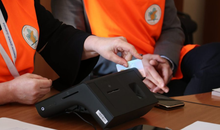
7 polling centers where electronic voter identification will not be applied
2025-05-10 19:44:49
Electoral crimes, many complaints, few punishments!
2025-05-10 19:33:39





Incident at Giro d'Italia, citizen hit by cyclist
2025-05-10 17:38:36
A parking lot the size of a house, the "golden" business in Tirana
2025-05-10 17:18:41



Berisha thanks supporters: Today we are more united than ever
2025-05-10 15:55:59
Fourth term: A luxury Albania cannot afford
2025-05-10 15:36:30
How to vote in tomorrow's parliamentary elections?
2025-05-10 15:24:12

Rama or Berisha, who won the audience battle on the two big screens?
2025-05-10 14:51:46
Tragedy in Gramsh/ Landslide crushes two workers, one of them dies
2025-05-10 14:28:15
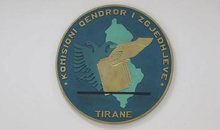

BIRN: Facebook profiles from Vietnam flooded Rama's interview on the show
2025-05-10 13:30:17








Foreign exchange, May 10, 2025
2025-05-10 10:16:12
How much does hourly parking cost in the capital?
2025-05-10 09:59:58

The US can no longer ignore Albania
2025-05-10 09:17:50




What do the stars predict for you today?
2025-05-10 08:18:36
Morning Post/ In 2 lines: What mattered yesterday in Albania
2025-05-10 07:59:03

Closing of the rallies/ Who got more clicks, Rama or Berisha?
2025-05-09 22:44:02



Rama opens up about LaCivita: It's the only 'same wheel' in that pile of waste
2025-05-09 21:40:54




Berisha thanks LaCivita: You insulted Rama by hitting the table with your fists
2025-05-09 20:51:13



PS ends campaign, Iris Luarasi: Small parties are like men who rape women
2025-05-09 20:12:35
Accident in Pogradec, a 73-year-old woman is injured
2025-05-09 20:05:29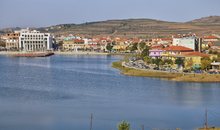

May 11 elections/ ID card distribution offices will remain open on Saturday
2025-05-09 19:30:22

DW: Parliamentary elections a decisive test for the EU
2025-05-09 18:53:03



Euro deposits fell by 0.4% during the first quarter of the year
2025-05-09 18:17:43

Eurovision 2025: The way qualifying countries are announced changes
2025-05-09 17:54:53
Kosovo/ Famous stylist stabs girlfriend in Pristina, then kills himself
2025-05-09 17:43:40

Prokuroria kërkon tre burgime të përjetshëm për Dan Hutrën
2025-05-09 17:23:51
Election materials arrive in Durrës under strict security measures
2025-05-09 17:11:46

Who will I vote for?
2025-05-09 16:48:25


DP: Wanted persons are looking to collect votes for the Socialist Party
2025-05-09 16:02:06

Artan Hoxha: One person was taken hostage for political conflict! SPAK failed
2025-05-09 15:30:17

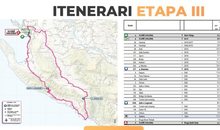


Is Rama ready to become the next Hoxha?
2025-05-09 13:50:12
Election materials arrive in Kukës, Has and Tropoja
2025-05-09 13:30:20
Electoral flight to Vlora
2025-05-09 13:18:04

IdentiTek offices open on Saturdays
2025-05-09 13:03:13
Will artificial intelligence help us talk to animals?
2025-05-09 12:55:58



Rama's fourth act: between Brussels and the Mafia
2025-05-09 12:12:47
The body of a 29-year-old man in Klos is found after 6 days
2025-05-09 12:01:27
Berisha: After May 12, this opposition will become the majority in Albania
2025-05-09 11:52:37
Leo XIV celebrates his first Mass as Pope
2025-05-09 11:42:34
